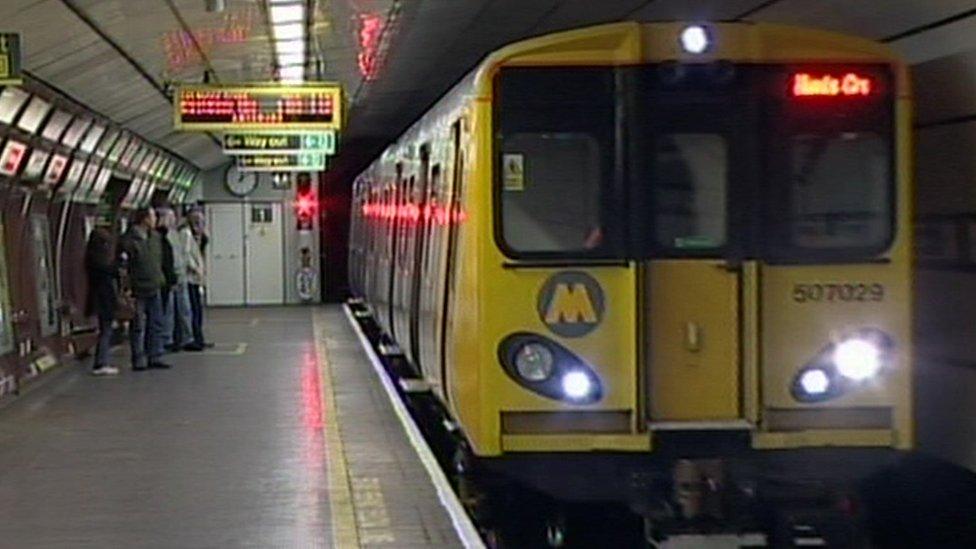Rail strike: What does a train guard do?
- Published
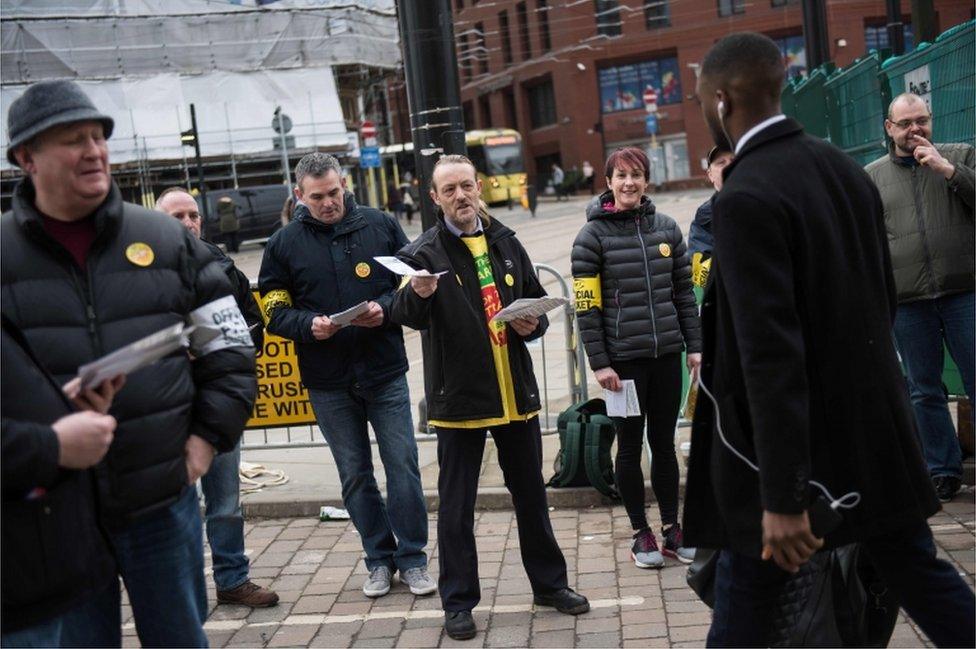
Rail staff from three firms across England are striking in a dispute over plans to make train doors driver-only-operated. Rail companies have said this would mean a guard is no longer needed to ensure the doors are closed. But is this all that a guard does?
The role of the guard has been at the heart of the dispute which has hit Southern commuters for much of the past year and has now spread to Merseyrail and Northern services.
The rail companies, backed by the government, are keen to move towards driver-only-operated trains which they say would improve efficiency.
But the RMT union says the plans would lead to an unacceptable reduction in passenger safety.
It says the guard - also known as conductor or train manager, depending on their employer - performs a much wider safety role than merely ensuring the doors are closed before the train departs.
Sean McGowan, RMT organiser for the North, said guards currently had to be competent in 35 areas, including evacuation of a train, what to do in the case of fire or derailment, and how to cope with a number of technical failures.
They also have to know the route, so they are aware of and avoid live tracks and can safely lead passengers across rails should there be a need to disembark. Every two years guards must sit a stringent written exam as well as take a verbal test.

Day-to-day duties of a guard
Checking the carriages are clean before the start of a journey
Making sure equipment, doors and controls are working properly
Walking through carriages during the journey, checking tickets and travel documents
Answering passengers' questions about routes, arrival times and connections
Making announcements over the public address system
Making sure passengers get on and off the train safely
Dealing with unexpected delays or emergencies, for example a passenger falling ill
Writing reports, detailing any delays or incidents that occur during each journey
Source: National Careers Service at gov.co.uk

Former guard Craig Johnston said: "The guards are there to take care of the train, which includes making sure carriages are clean and safe.
"The driver is away from it all, concentrating on driving the train, so guards look after the train and protect it.
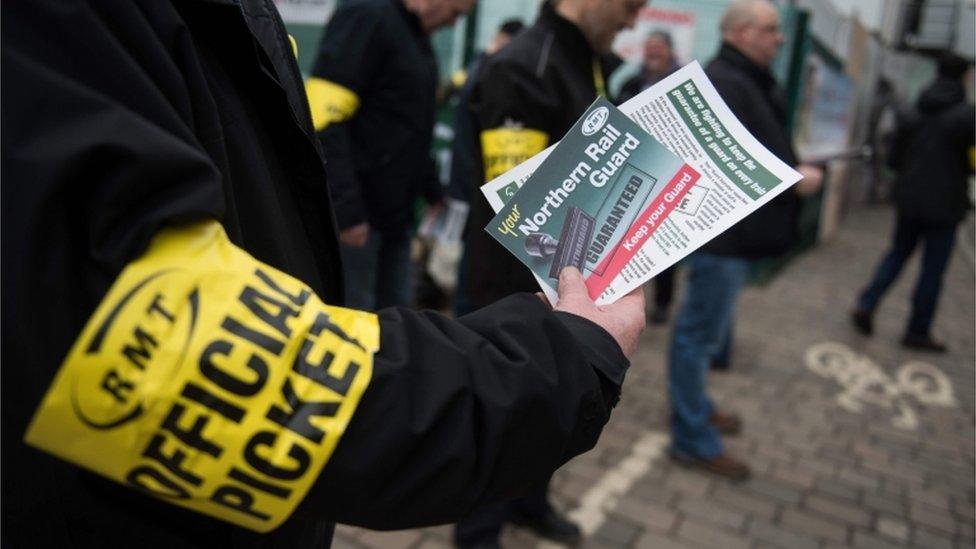
"We put a stop to anti-social behaviour, make sure the train is secure and offer help and advice.
"Although we don't carry out first aid ourselves, the fact we're aboard a train means we can make sure the appropriate help is called for people needing it in medical emergencies."
The RMT claims driver-only-operated trains would dispense with guards and replace them with less qualified staff selling tickets, teas and coffees. It says this poses a risk to passenger safety, as they would be unable to help in an emergency.
However, the train companies deny this and claim the second staff member on board the train would receive "appropriate" training.
Paul Plummer, from the Rail Delivery Group - the body that represents train operating companies - said: "They will have appropriate training, but if they're not opening the door they will not need the same level of training."
He suggested the new arrangement would be good for customer safety, as train staff would be able to "focus entirely on passengers".
- Published14 March 2017
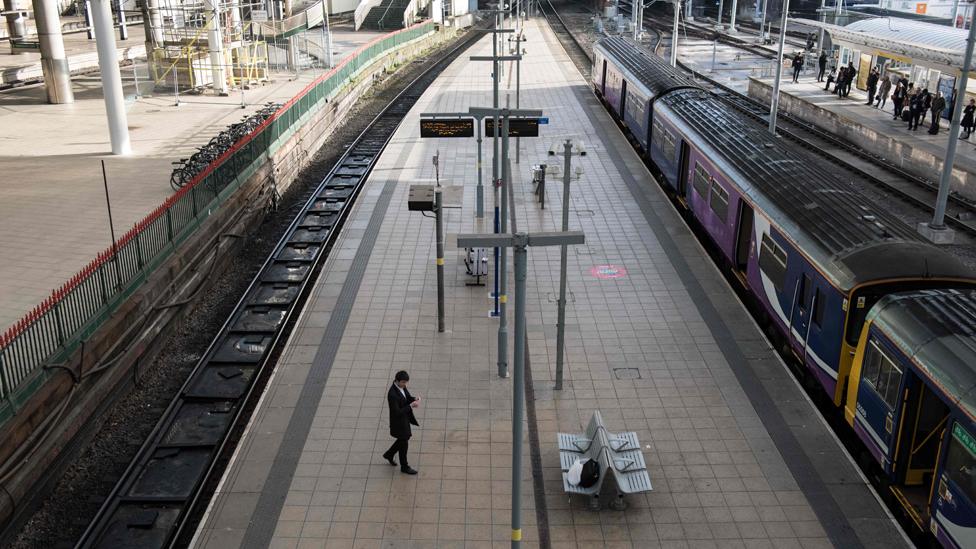
- Published28 February 2017
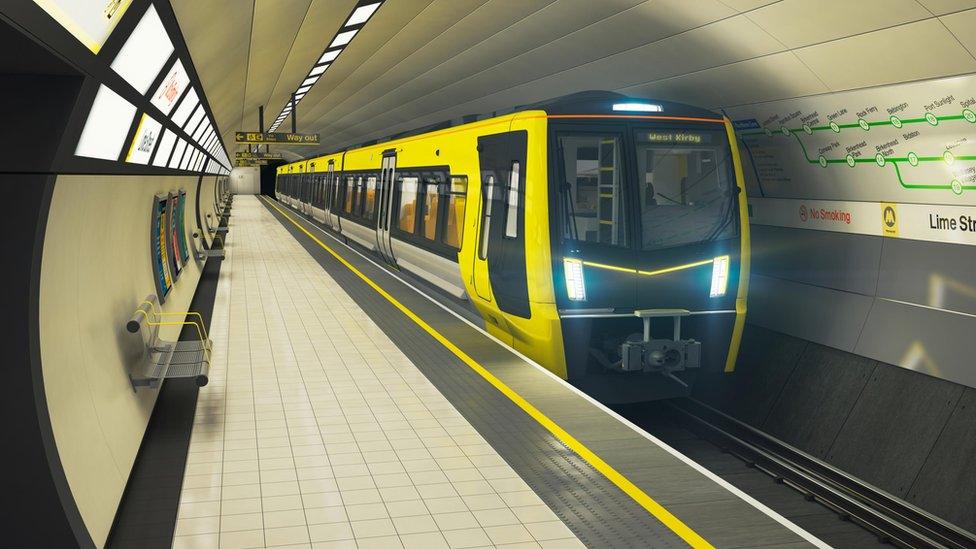
- Published22 February 2017
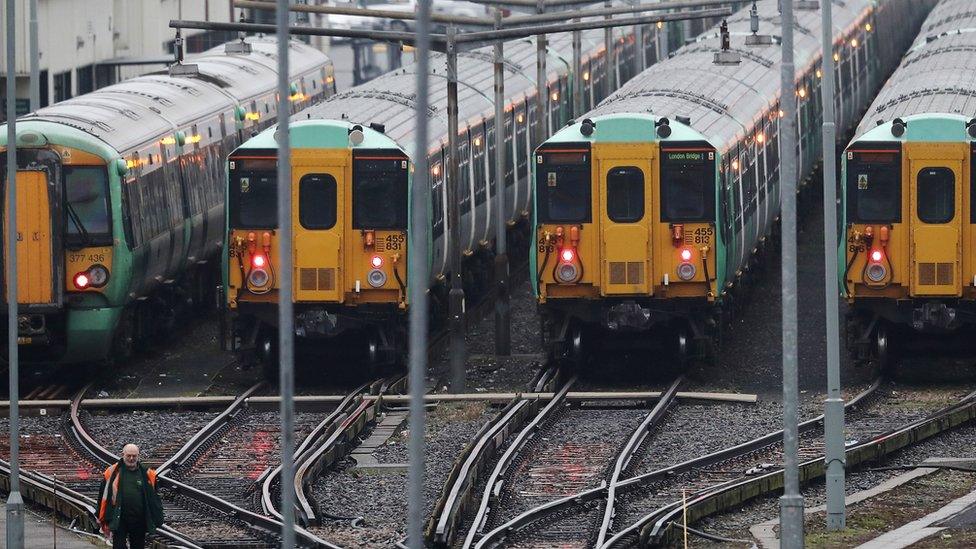
- Published16 December 2016
